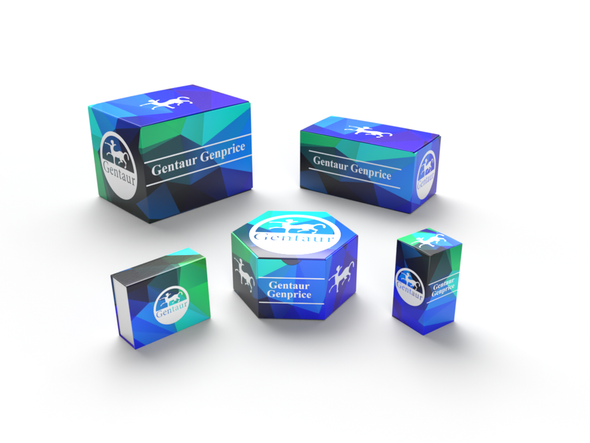740
Human TRAF2 and NCK-interacting protein kinase (TNIK) ELISA Kit | AE13957HU
- SKU:
- 740-AE13957HU
- Availability:
- Usually ships in 5 working days
Description
Human TRAF2 and NCK-interacting protein kinase (TNIK) ELISA Kit | AE13957HU | Gentaur UK, US & Europe Distribution
Species Reactivity: Human (Homo sapiens)
Abbreviation: TNIK
Alternative Name: N/A
Application: ELISA
Range: 15.6-1000 pg/mL
Sensitivity: 6.1 pg/mL
Intra-Assay: ≤5.2%
Inter-Assay: ≤8.1%
Recovery: 0, 96
Sample Type: Serum, Plasma, Other biological fluids
Detection Method: Sandwich
Analysis Method : Quantitive
Test Principale: This assay employs a two-site sandwich ELISA to quantitate TNIK in samples. An antibody specific for TNIK has been pre-coated onto a microplate. Standards and samples are pipetted into the wells and anyTNIK present is bound by the immobilized antibody. After removing any unbound substances, a biotin-conjugated antibody specific for TNIK is added to the wells. After washing, Streptavidin conjugated Horseradish Peroxidase (HRP) is added to the wells. Following a wash to remove any unbound avidin-enzyme reagent, a substrate solution is added to the wells and color develops in proportion to the amount of TNIK bound in the initial step. The color development is stopped and the intensity of the color is measured.
Product Overview: TNIK was autophosphorylated in a manner dependent upon lys54 in the ATP-binding pocket of its kinase domain. Immunoprecipitation analysis showed that epitope-tagged TNIK coprecipitated endogenous TRAF2 from human embryonic kidney cells. Mutation analysis revealed that the intermediate domain was sufficient for the interaction, although the GCK domain may contribute. The intermediate domain was also sufficient for interaction with NCK. Cotransfection of TNIK with JNK2 (MAPK9) enhanced JNK2 kinase activity in a dose-dependent manner, and this effect was mediated by the GCK region of TNIK, but not the kinase domain. TNIK overexpression had no effect on ERK1 (MAPK3), p38 (MAPK14), or NF-kappa-B.
Stability: The stability of ELISA kit is determined by the loss rate of activity. The loss rate of this kit is less than 5% within the expiration date under appropriate storage condition. The loss rate was determined by accelerated thermal degradation test. Keep the kit at 37°C for 4 and 7 days, and compare O.D.values of the kit kept at 37°C with that of at recommended temperature. (referring from China Biological Products Standard, which was calculated by the Arrhenius equation. For ELISA kit, 4 days storage at 37°C can be considered as 6 months at 2 - 8°C, which means 7 days at 37°C equaling 12 months at 2 - 8°C) .






